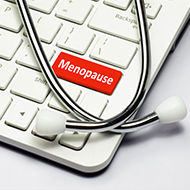
The move aims to support individuals and veterinary teams.
A range of free menopause support resources have been announced to improve the wellbeing of veterinary professionals.
The resources, created by WellVet and available through the WellVet website, are aimed at people directly affected by the menopause, as well as those wishing to support others who might be impacted.
Among them include bitesize video and audio clips covering a range of topics, including learning how to manage symptoms, and tips on how workplaces can better support their team members.
WellVet, a not-for-profit social enterprise, has received sponsorship from the RCVS Mind Matters Initiative (MMI).
“Not all women will experience will experience problems commonly associated with menopause. But for those with severe symptoms, the debilitating effects can last for years, impacting their personal and professional lives,” explained MMI lead, Rapinder Newton.
“We are really proud to have supported Wellvet to provide these invaluable evidence-backed resources for veterinary professionals, so that we can all continue to learn and navigate menopause in an understanding and compassionate manner.”
Menopause, defined as the point in time one year after a woman has had her final menstrual cycle, has gained significant awareness in recent years - largely in part due to high-profile celebrity campaigns and broader public health initiatives.
However, the transition to menopause can also have a significant impact on an individual's mind and body. Perimenopause, typically lasting around a decade, often brings about physical and mental challenges, including mood swings, difficulty sleeping, anxiety and difficulty concentrating.
"We saw a significant shift in the way we think and talk about mental health and wellbeing through the 2010s,” explained Dr Liz Barton MRCVS, WellVet co-founder. “Now we need the same to happen with menopause.
“In a predominantly female profession facing a workforce crisis, it’s vital we support team members in the workplace. The perimenopause years are the peak ages for women to die by suicide, and the most common perimenopause symptoms are psychological. We must do more to provide meaningful support.”



 The Veterinary Medicines Directorate (VMD) is inviting applications from veterinary students to attend a one-week extramural studies (EMS) placement in July 2026.
The Veterinary Medicines Directorate (VMD) is inviting applications from veterinary students to attend a one-week extramural studies (EMS) placement in July 2026.